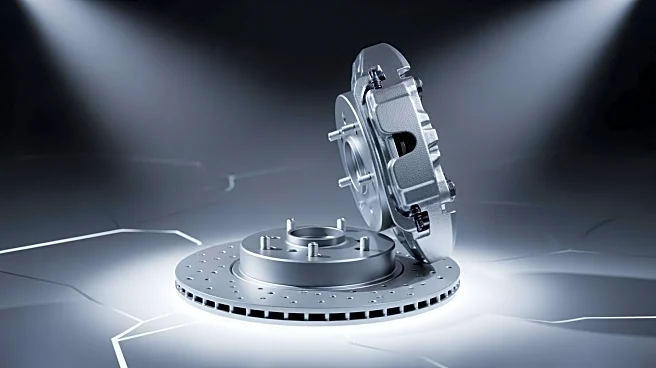What's Happening?
AVL, a leader in automotive engineering, has raised concerns about the readiness of automakers and suppliers to meet the upcoming Euro 7 brake particulate emission standards, set to take effect in November
2026. The new standards impose strict limits on particulate emissions from brake abrasion, with specific thresholds for different vehicle categories. AVL highlights the complexity of measuring brake particles compared to exhaust emissions, noting that many current systems may not comply with the new regulations. The company emphasizes the need for significant changes in brake system design and testing to meet these standards.
Why It's Important?
The implementation of Euro 7 standards represents a significant shift in automotive emissions regulation, focusing on non-exhaust sources of pollution. Compliance with these standards is crucial for automakers to continue selling vehicles in the European market. The challenges outlined by AVL underscore the need for innovation and investment in brake technology to reduce particulate emissions. This development has implications for the global automotive industry, as similar regulations may be adopted in other regions, influencing vehicle design and manufacturing processes.
What's Next?
Automakers and suppliers must accelerate their efforts to develop and test compliant brake systems. AVL offers a comprehensive approach, including measuring instruments, engineering, and simulation, to assist companies in achieving compliance. As the deadline approaches, the industry is expected to see increased collaboration and investment in research and development to address these challenges. The outcome of these efforts will likely influence future regulatory frameworks and environmental standards in the automotive sector.









